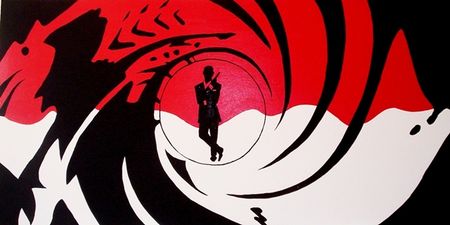On the same week of director David Fincher’s interpretation of The Girl With The Dragon Tattoo, we thought we’d revisit his late 1990s classic Fight Club.
Nowadays, a quick glance on the Internet Movie Database (IMDb) will tell you all you need to know about Fight Club‘s standing as a cult classic.
After receiving 509.065 votes (as of this writing) on the hugely popular movie site, the film is currently ranked as the 13th best movie of all time, above the likes of Goodfellas (15th), Casablanca (19th) and Rear Window (1954). Not bad for a film that absolutely tanked at the US box office and was a critical failure.
In fact, the original DVD release wears critical revulsion as a badge of honour, as the packaging includes negative critic quotes that came at the time of the film’s cinema release.
Initially hyped alongside an unconventional soap-based viral campaign (Brad Pitt’s Tyler Durden character introduces himself as a soap salesman) no-one knew what to expect at its Venice International Film Premiere in 1999 but it was quickly seen as both brutal and morally irresponsible. Only through the medium of DVD, which was beginning to explode in popularity, did the tide of popular opinion turn.

The full motivations behind the behaviour of Helena Bonham-Carter’s character only becomes available on repeat viewings
For most young men such as myself, my first viewing of Fight Club was absolutely invigorating. Just as The Matrix had done six months previous, watching the film I could feel my head become forcibly opened to new ideas and alternative ways of living.
Viciously anti-consumerist, the film on a very basic level tells a tale of Edward Norton’s protagonist character discovering that societal pressure had forced him to focus on the inessential and that to really start living, he would have to get back to his most basic, primal urges.
In his case, it involves setting up secretive fight clubs with the charismatic and mysterious Tyler Durden until the latter eventually decides to up the ante on new societal targets.
A few months later, Kevin Spacey’s character in American Beauty would undergo a similar transormative narrative arc to Norton’s and yet Spacey’s role and film became critical darlings. Perhaps critics weren’t too fond of Norton’s friend with benefits Marla Singer (Helena Bonham Carter) telling him that she wanted to have his abortion. That’s a pretty jarring line of dialogue to be fair.
Amidst the ongoing global recession and the glimmers of societal breakdown with global protests against the wealthy “1%”, the denouement of Fight Club, even its entire act, seems extremely ahead of its time.
Both Pitt and Fincher would eventually reteam and receive Oscar recognition with The Curious Case of Benjamin Button but neither star nor direction felt more terrifyingly urgent and dangerous than in 1999.
While Pitt is expected to receive a gong this February for his work in Moneyball, watch his magnetic screen presence as Tyler Durden and try tell me that the Academy won’t be thirteen years too late come February.
For more cult films, check out the Jameson Cult Film Club.
LISTEN: You Must Be Jokin’ with Aideen McQueen – Faith healers, Coolock craic and Gigging as Gaeilge





















































